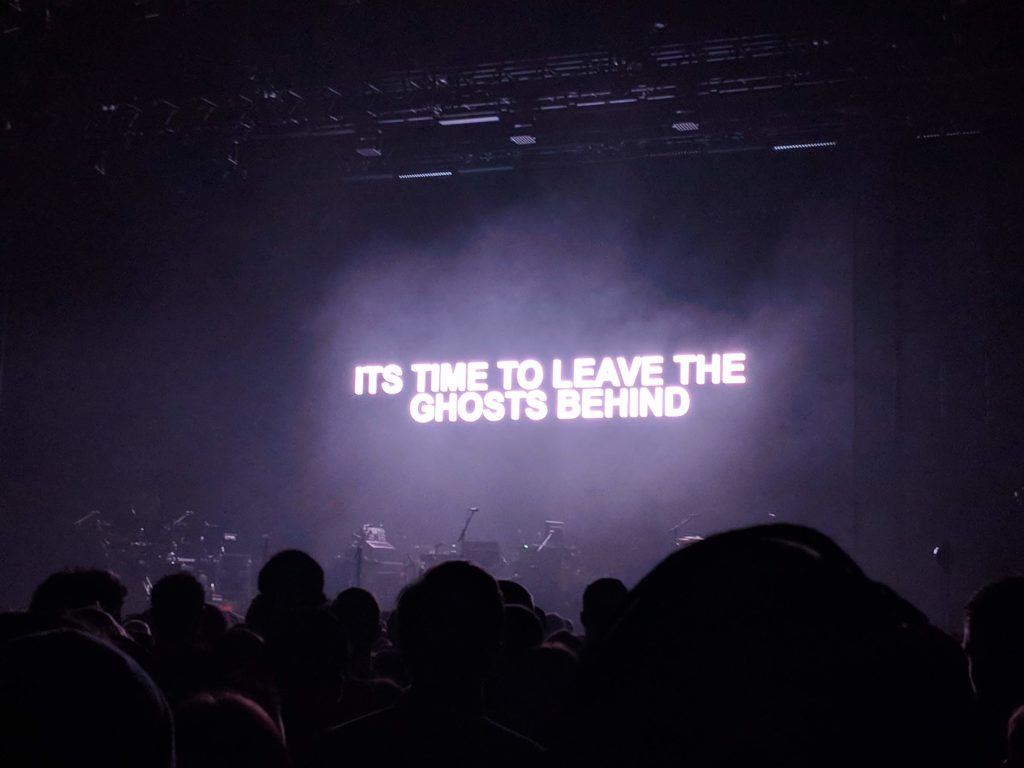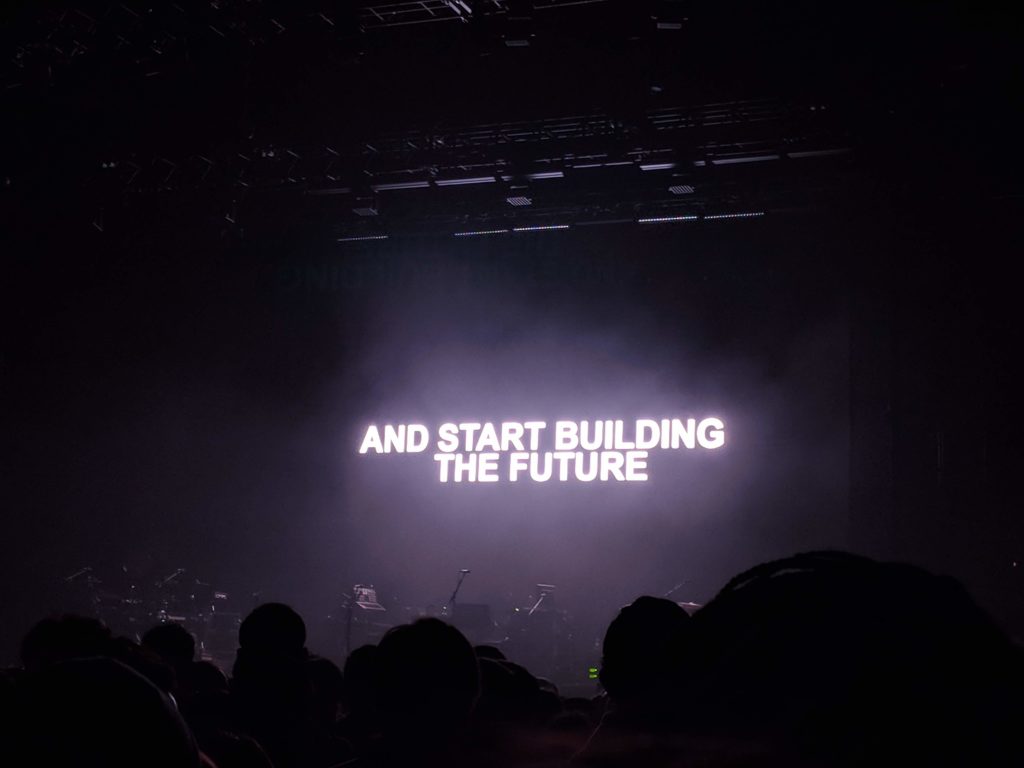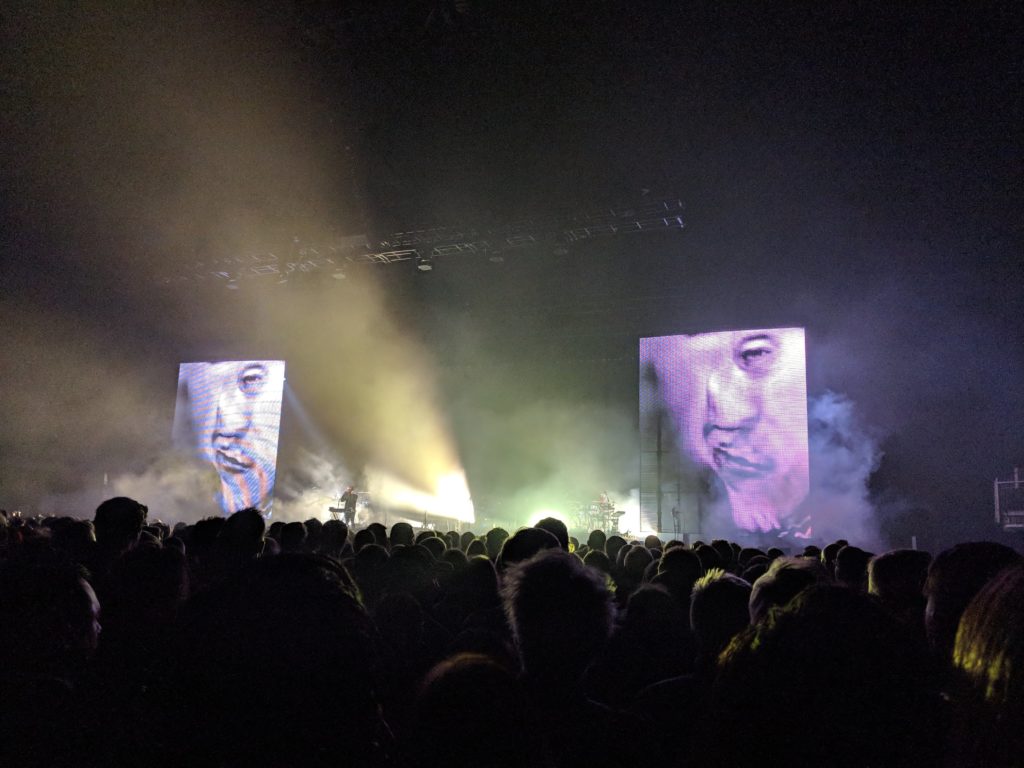There is no experience outside of the ‘experience’
The Rein of the Visual
Since the spectacle’s job is to use various specialized mediations in order to show us a world that can no longer be directly grasped, it naturally elevates the sense of sight to the special preeminence once occupied
by touch: the most abstract and easily deceived sense is the most readily adaptable to the generalized abstraction of present-day society. (1)
In the latest video art, aside from the data robbery that we should be aware of, Massive Attack brought our attention to another important fact – we are massively surrounded by 2D images (and among other things, that allows dead people to live with us forever – symbolically portraying us as a world full of zombies). Although no one would argue that we live in a 3D world (and indeed our bodies have volume) we are hooked on the 2D world of images and video. We are basically living the Truman’s Show, except we have first accepted its terms and conditions. Enter – VR and mixed reality and we are creating a full body replica of what we think our reality is. Please note – this is not a critique of VR as a medium, it is just to point out its origin, aim and the ‘experience’ it creates. The spectacle, being interwoven into every gadget we use to access our mediated world, is relying on the visual as its main source of creating our illusions, so even when it involves sound and smell, its goal is still a ‘representation of life’ that we are to consume (but not to live), nor
From Massive Attack Mezzanine Tour in London 02 Arena, February 2019.
This leads us to a broad question of where the authentic emotions have gone? With the perpetual, extreme politeness in communication coupled with interested-generated news, the real, raw, non-mediated emotion is starting to seem like a lunatic attack, a far-rightist rant or something from a rom-com.
I guess that when I feel sad now, I could choose the ‘Kardashian’ or ‘Miley Cirus’ kind of sad. Same as the ‘Tiffany’ kind of engagement feeling- replicating their expensive-exclusive romance from the ads or some travel bloggers ‘dream wedding’ in Bali. We are conditioned to want – certain things from certain brands and by being emotionally and visually triggered to want them. Our feelings are split into little placeholders defined by certain emotions that these things promise to give or fulfill in us.
To Have and to Show Till Death Do Us Part
The illusory paradise that represented a total denial of earthly life is no longer projected into the heavens, it is embedded in earthly life itself. The spectacle is the technological version of the exiling of human powers into a “world beyond”; the culmination of humanity’s internal separation.” (2)
Along with separation, the spectacle, as Debord points out, is characterized by the lack of two-way communication – it talks to itself and its bi-products are reinforcing its values back in an endless loop. In order to ‘show’, you need to ‘have’. And you will work on having, even to the point of living that serves the sole purpose of you having something desirable. Which brings us (back) to the class separations. With the work being very specialized and hundreds of Chinese workers building iPhone’s separate parts so that the privileged-mass buying community can have their shiny new objects to have and to show. The products of the separationist methods in work continue to separate their users.

Oh, and you may now kiss your phone.
The computational art and the chimera of representation
There is one thing that is rather striking in creative coding – its need to replicate nature. To produce the ever-more natural sinus movements, to explain and predict the movements of particles, to ‘solve’ the flock of birds so that dots on the screen move in a similar manner. From the scientific point – to put apart and understand how it works and evolves, it makes perfect sense. But for the art purposes, we are seeing way too much of ‘rotating, shiny’ objects – without the story or any deeper meaning that is waiting to be discovered and could not have been said via a different medium. The fascination with representing ‘nature’ or replicating something is not bad in itself (not going into Plato’s view of arts) but the issue that I keep seeing is the lack of content and the abundance of technological display.
The medium is the
massage . Any understanding of social and cultural change is impossible without knowledge of the way media work as environments. (2)
So let us ask a few more times: What is true to the computational art medium? Why do we use technology in the first place and not something else to express ourselves? What is an ‘experience’? Is a perfect geometrical object rotating in black space – computational art or are we fascinated by the capabilities of the specific commodity? Are we locked in the ‘representation loop’ in computational art?
References
(1) Debord, G. (1967), Society of the Spectacle, [online] theanarchistlibrary.org, accessed February 20th, 2018.
(2) McLuhan, M. and Fiore, Q. (1967), The Medium is the Massage, Penguin books, London, England.


